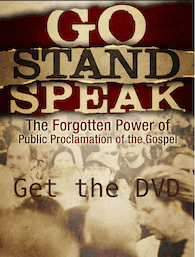By Charles C. W. Cooke is an editorial associate for National Review
Announcing
the results of his long-term “evolution” on the subject last week, President
Obama revived the debate over gay marriage. In the widespread discussion,
however, there is one question that’s rarely asked: How interested are gay
couples in getting married?
This dearth of early adopters is not peculiar to America. Research conducted in 2004 by Gunnar Anderson, a professor of demography at Sweden’s Stockholm University, seems to confirm the trend. Anderson looked at legal partnerships in both Norway and Sweden and found that in Norway, which legalized civil unions in 1993, only 1,300 homosexual couples registered in the first eight years, compared with 190,000 heterosexual marriages; in Sweden, between initial passage in 1995 and a review in 2002, 1,526 legal partnerships were registered, compared with 280,000 heterosexual marriages. In the Netherlands, gay marriage is actually declining in popularity: 2,500 gay couples married in 2001 — the year it was legalized — and that number dropped to 1,800 in 2002, 1,200 in 2004, and 1,100 in 2005. In 2009, the last year for which figures are available, less than 2 percent of marriages in the Netherlands were between same-sex couples.
Controlling for the ratio of homosexuals to heterosexuals does little to explain the enthusiasm gap. For rates to be similar, we would have to pretend that only 0.5 percent of the population of Sweden, 0.7 percent of the population of Norway, and less than 2 percent of the population of Holland is gay. In fact, the numbers tend closer to an average of 4 percent, which suggests that heterosexual couples are up to eight times more interested in registering their relationships than homosexual couples. It is, of course, possible that the estimated number of homosexuals is wrong, but, if anything, gay-rights groups tend to argue that the projected numbers are too low, and statistics show that the numbers of self-identified gay citizens are going up in every Western country.
Enthusiasm for marriage is somewhat lopsided by gender. Divorces, too. According to UCLA’s Williams Institute, two-thirds of legally recognized same-sex couples in the United States are lesbian. (Solely on the “marriage” front, in Massachusetts’s first four years, this statistic was 62 percent.) While data in the United States are clearly limited, Scandinavian countries have been at this a little longer. Denmark was the first country to introduce recognition of same-sex partnerships, coining the term “registered partnership” in 1989. Norway followed suit in 1993, and then Sweden in 1995. Again, Stockholm University’s study seems to confirm the American trend. In Norway, male same-sex marriages are 50 percent more likely to end in divorce than heterosexual marriages, and female same-sex marriages are an astonishing 167 percent more likely to be dissolved. In Sweden, the divorce risk for male-male partnerships is 50 percent higher than for heterosexual marriages, and the divorce risk for female partnerships is nearly double that for men. This should not be surprising: In the United States, women request approximately two-thirds of divorces in all forms of relationships — and have done so since the start of the 19th century — so it reasonably follows that relationships in which both partners are women are more likely to include someone who wishes to exit.
The debate over marriage does not necessarily hinge on its popularity among the eligible, and advocates of gay unions would no doubt assert that “equality” is not a numerical proposition as quickly as their opponents would aver that the very idea is a hopeless category mistake. But it is nonetheless worth noting that there is no particular groundswell — even in states and cities that have both legal gay marriage and significant numbers of homosexuals — and that, when gay couples do decide to get married, they are more likely than their straight equivalents to change their minds later.
—








